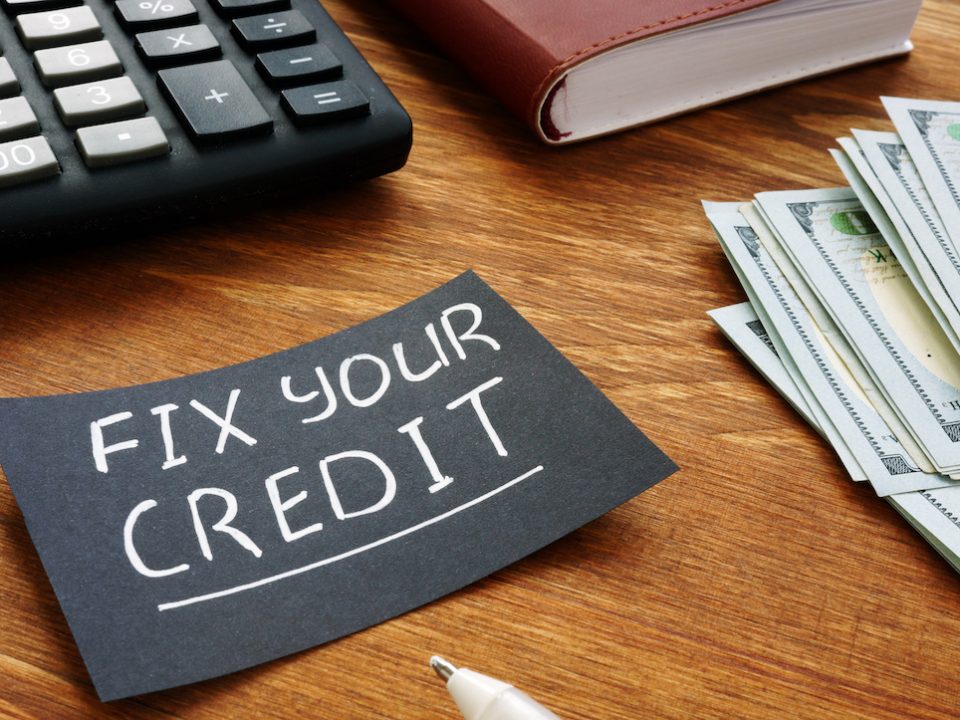You think you have good credit, but it’s been a while since you’ve looked up your credit report. So you go to inquire about a new loan – potentially to buy a home with – but you’re denied. You’re confused and don’t understand why, so you log on to take a look at your credit report. You find credit report errors with inaccurate information. If that information would’ve been disputed, you would’ve been able to get your loan. Now, it’s going to set you back on becoming a homeowner for months… this could have been avoided by regularly checking in on your credit report.
The top complaint received by the Consumer Financial Protection Bureau involves having incorrect information listed causing a credit report error. Have you noticed an error on your credit report? Having an error can lower your credit score and prevent your ability to qualify for new credit – which can harm your chances for opening new lines of credit if you want to buy a home or car.
What is a Credit Report?
Before you can fix errors on your credit report, you have to understand what a credit report includes. A credit report is a summary of how you’ve managed your credit accounts. This report is given to lenders and creditors to determine whether or not you’re going to be a risky borrower. It also allows them to better make the terms at which they can offer you credit. Equifax includes the following on their credit reports:
- Identifying information (your personal information: name, address, Social Security number, date of birth)
- Credit account information (types of accounts: credit cards, student loans, mortgage)
- Inquiry information (hard inquires, like credit reviews by potential lenders and small inquiries, like checking your own credit)
- Collection amounts (including past-due amounts that have been turned into collections. This can include medical, retail, phone bills, and more)
- Bankruptcy information (filing dates and chapter)
Common Credit Report Errors
Common errors in credit reports include incorrect names and addresses. According to FICO, it’s important to make sure that you are consistent in using the same first name and middle initial, or your credit report could suffer. It’s also important to practice the same care with your Social Security number and address.
Other common errors include:
- What’s not on your account, missing credit files
- Clerical error when entering information from hand-written application
- Double mentions of accounts
- Not closing the account properly
- If divorced, having your former spouse’s debts on your report
- Older bad septs still on your credit report and it has been seven years since the incident
- Bad debts caused by identity thieves who have accessed your personal information
It’s important to know what’s responsible for the errors. Is it you? Or do you think that you’ve been targeted by an identity thief? Knowing the root cause of the errors will help you resolve the problem in a more timely manner, getting your credit back up where it should be in no time.
Fixing errors on your credit report can boost your score quicker than most realize. If you find information that is incorrect on your credit report, you can file a dispute. Items on your credit report that you don’t recognize could also be potential signs of identity theft. Make sure that there are no potentially fraudulent items present to keep your credit score healthy, and climbing.
Fixing Errors on Credit Reports
You want your credit report to be accurate. If in the event you find an error, you want to remedy it as soon as possible. To dispute an error, you’ll need to alert your credit bureau of the error with a report that shows it and an explanation on why it’s an error. The bureau then will have a certain amount of time to investigate it and get back to you about your dispute. You’ll then need to review your dispute and re-review your credit reports.
If your dispute was awarded, you’ll notice the corrections on an updated report. You can also request that your bureau send notice to anyone who received an incorrect report in the immediate 6 months prior to the dispute. However, in some cases your dispute could be denied. In this instance, you can file a written statement to be included in your credit report. You then have the right to request that the bureau send this statement along to anyone who’s received your report in recent history. However, be advised: this could come with a fee.
It can take time for updates to show up on your credit report, and that’s why it’s important to continue to monitor your credit report until the change is made.
What Does it Mean to Have Your Identity Stolen?
According to consumer.gov, identity theft is a rime were someone uses your information like your:
- Name and address
- Credit card or bank account information
- Social Security information
- Medical insurance account information
When an identify thief has access to your personal information, like those above, they can do things like use your credit cards (or even take out new credit cards), open various accounts (like a phone), steal your tax refund, receive medical are, and pretend to be you if they’re arrested.
How to Protect Your Credit Report if Your Identity is Stolen
It’s important to take quick action to protect your credit if your identity has been compromised. First, download an updated credit report. Read through it carefully to identify what all has been opened against your knowledge. Then, you’ll need to call the fraud departments of the institutions where your accounts have been opened. They’ll then freeze or close the accounts.
Apply a fraud alert on your credit report. According to Forbes, this will glad the report to creditors and alert them of any further suspicious activity before they approve any application for credit. You can do this by contacting a credit report agency like: Experian, Equifax, or TransUnion.
Be sure to change all of your passwords to your online accounts. It would even benefit you to contact your local police department to file a report. This will give you the right to stop a debt collector from getting ahold of you. It will allow you to dispute the wrong information on your credit report.
Why You Should Monitor Your Credit Report Frequently
Getting your hands on a copy of your credit report annually is free, so it won’t cost you a dime. Allowing inaccuracies on your report, though? That could cost you a lot of dimes. Taking the time to review your credit report every couple of months will ensure you’re in good standing and ready to apply for new credit if the opportunity arises. This is an important step in maintaining and managing your finances. It’s a good rule of thumb to think of your credit card like a bank statement or bill: you should be looking it over.
Negative information on your credit report stays there for 7-10 years, allowing lenders to have a better look at your credit history. Though this may seem unfair if you are a potential borrower suffering from a poor credit history, it protects lenders from lending money that is never repaid. However, if negative information is incorrect you should report it as soon as possible to correct the issue fast.




